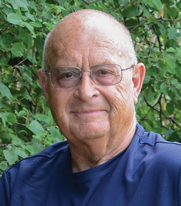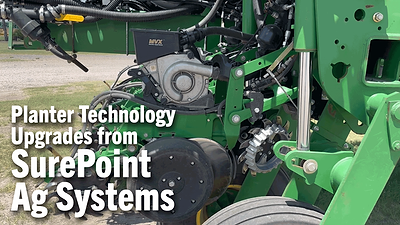Vermeer Corp. recently announced 4 new labor-saving and management concept applications that forage producers can anticipate in the company’s product portfolio over the coming seasons. The list includes:
- An autonomous bale mover named “Black Hawk” that uses sensors to travel a hay meadow to locate bales, pick them up and deliver them to a predetermined location.
- On-board bearing temperature sensors to help baler operators monitor potential bearing problems in time to schedule preventative maintenance to avoid breakdowns in the field.
- A windrow guidance system for the company’s new self-propelled ZR-5-1200 baler that uses light detection and ranging (LIDAR) sensors to track the windrow and automatically steer the machine.
- The Forage Commander app connects the user’s smart device via Bluetooth technology with the baler to provide in-the-field statistics including bale weight, bale moisture, bales per hour and other information aimed at better decision making for the forage producer.
The impressive list of innovations sparked our interest in what the folks at Vermeer envision in the hay field in coming years and what they are doing to stay ahead of that curve.
A visit with Mark Core, executive vice president and CMO, and Mindi Vanden Bosch, managing director of the company’s Forage Solutions, included a discussion of the family-owned company’s culture — which sparked the “Big Round Baler” industry 50 years ago and has provided a long-list of new balers and related forage handling products over the years. Vermeer has a separate Forage Innovation engineering team solely dedicated to work on things not currently in the marketplace.
“Our mantra is we should be able to provide solutions to the marketplace before customers realize they have a problem,” Core explains. He says many times we assume ‘what is’ is ‘how it’s going to be’ and that can prevent seeing market-changing potential.
“Over the last 10 years we’ve made a concerted effort to seek to solve unarticulated problems our customers may face,” he explains. “Our Forage Innovation team concentrates on observing the market and interacting without a lot of public discussion to identify inefficiencies in forage handling.
“Labor availability has always been a problem in forage production but is becoming even more critical as fewer individuals work on farms, and the coming of the next generation of workers,” he says. “These people can be good machine operators, but as a group, come without the extensive mechanical abilities possessed by older workers who grew up working on cars and tractors.
“That’s why our goal is to provide forage equipment that requires less mechanical tending and provides easier, more precise controls for the operator.”
Core says Vermeer’s main engineering team constantly looks for ways to enhance product reliability and efficiency, listening to customers and sales staffers, and observing forage equipment in the field. They also collaborate with the Forage Innovation team about what customers need and maybe don’t realize they need.
“The Forage Innovation team searches for cross influences by spending time in the automotive, construction, digital and manufacturing sectors, looking for trends and applications that can improve the value of our products to our customers,” he says. “For instance, the on-board bearing temperature sensor system in our new concept list is based heavily on the technology found in your vehicle’s tire-pressure sensor system.”
Vanden Bosch says her staff also taps insight from Vermeer’s other product lines in infrastructure construction, directional-drilling and horizontal grinders.
“We benefit from cross-sharing technology within our own company as well with companies in other industries,” she explains.
The granddaughter of Gary Vermeer, Vanden Bosch says since Vermeer is family-owned, the culture started by her grandfather has endured in the team-effort to constantly reduce labor requirements in the hay field.
“My grandfather set a guiding principle with the following quotation: ‘Find a need, fill that need with a product built to last and simply build the best.’ Because the beginning of the round baler industry was sparked by the need to reduce labor, we’ve tried applying his principle in everything we do on the forage side, and we take pride in continually thinking on these things.”
Vanden Bosch says the family’s management style includes a long-term view of product development, which spawned the Forage Innovation team — an expensive investment that might not have been made in many other companies.
Core agrees, noting investing in the Innovation team was an expenditure which reduced Vermeer’s overall short-term profit potential, but because of the family’s long-term dedication to product and market development the decision to make the investment was possible.
He says Vermeer’s culture doesn’t penalize failure, which provides a freedom to all employees to try new things.
That attitude is another reflection of 50 years of doing business in the manner of Gary Vermeer, who also said, “If at least 50% of the things you try don’t work, then you aren’t trying hard enough.”






